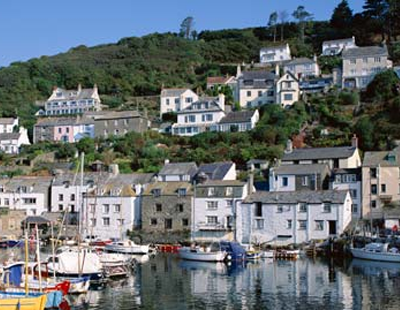What is the extent of the skills shortage currently in your region?
The skills shortage in the hospitality sector is a significant one. There is no doubt that the pool of people we can recruit from is smaller than usual.
What Government support would you like to see for the hospitality sector in Cumbria?
One of big challenges in Cumbria, and particularly within the national park, is housing people in a holiday hotspot. The cost of living is high and availability of housing is small.
It’s unfortunate that the private rental market and holiday letting sector aren’t regulated in the same way.
In Cumbria, we have traditionally welcomed people from outside the UK coming here to work in hospitality. However, now, as they are no longer coming over to the UK, recruitment is proving hugely challenging.
There is huge merit in the different levels of skills brought in from hospitality workers from abroad, especially those in front of house positions, as this is a skilful job which has traditionally been more highly valued abroad.”
What is the outlook for hoteliers, holiday property owners, restauranteurs, pub and bar owners in Cumbria?
The demand from consumers is very strong: we have been seeing levels of demand I’ve never experienced in my 23 years in Cumbria! We are getting lots of new visitors to the region for the first time and many local businesses are really benefitting.
The ability to find enough staff is the big concern: as an industry, can we hit the level of productivity we need to, whilst remaining sustainable and profitable?
We’re seeing more British workers entering the hospitality sector – but there is still a considerable skills gap. What does the industry need to do to recruit more people into catering and hospitality to ensure it has sustainable talent?
Our sector does not have a good reputation as a place to develop a decent career, but it is vital that we work to change perceptions of our sector and provide year round employment.
In a post-Covid world people are looking for flexible working time patterns and shifts which work to support overall wellbeing. We need to look at ways of engaging with potential staff and coming up with creative ways of working which embraces family life.
-
Next up, we hear the thoughts of John Haley, partner at Edwin Thompson on the theme of holiday let investment consideration
What patterns have you observed in the hospitality accommodation market over the last 18 months?
Visitors immediately reserving accommodation for 2022 suggests another strong staycation trend for the region next year.
In spring 2020, valuers were left uncertain about where prices might go as the estate agency market closed for three months. However, what we found when everything opened up, was a pent-up housing market and an increased demand for properties which can be used for holiday lets. This has had a positive effect on house prices within the region.
Leisure properties are valued with reference to their trading potential, however with general values rising, demand increasing for live-work businesses in the area and trading now strong, I think it is reasonable to assume that values have not decreased and are likely to be underpinned by the buoyant property market.
How do you predict the hospitality accommodation market will look over the next 12 months?
I think the market will continue to be strong with the combination of good trading and repeat bookings already being made for 2022.
I can see values holding steady or even increasing further in the next 12 months.
Our recent survey revealed 86% of holiday accommodation owners have invested in their business during the pandemic, with 94% of them making a long-lasting positive change. Are you seeing any trends in terms of the types of changes accommodation owners are making to their properties?
Hospitality businesses have used the time to upgrade accommodation.They have used the time when they were forced to close to improve their facilities, particularly outside space where possible and increasing the specification and quality of guest rooms and holiday lets.
The closures also allowed maintenance works to be carried out, which suggests overall buildings should be in a better condition internally and externally than pre-pandemic times.
From a valuation perspective, with an overall improvement in the standard of accommodation coupled with the strong visitor demand, there is the potential to increase room and holiday letting rates and thus improve turnover which should transfer into improved profitability and the values increasing.”
Lastly, a chat with James Wilkinson, owner of The Three Shires Inn on trading challenges.
Our research showed that 84% of consumers say they prefer to holiday in the UK this year. With this increase in demand in mind, what has been the greatest challenge for you as a small business this season?
“We have experienced a significant uptick in demand for the service we supply. However, at the same time it has been very challenging to hire skilled people. Basically, there’s been more to do and not enough people to do it!”
Our research showed the majority of UK consumers (69%) are willing to pay more for a holiday property offering a deep cleaning service and clear instructions on its Covid-19 guidance, but what are the challenges you see amongst owners in recruiting, training and employing staff to carry out such services?
A deep-cleaned property is an entry criteria for a hospitality business. However, getting workers who are skilled to the level required is very hard. Working in hospitality is very demanding, accompanied with not particularly high wages due to the margins involved.
Training is something that we do on the job, and whilst more cleaning in general is required in a post-Covid world, it in itself is not challenging.
As far as recruitment goes, we have found that often there are no candidates for some of the roles on offer.
What measures would you like to see put in place in order to increase jobs and skills in the hospitality sector?
“The cause of the issue is threefold: number one is that the pandemic has meant that people have been off for a long time and many have chosen not to return to the hospitality industry. Second is that the hospitality sector needs to promote itself as a positive choice of career.
Thirdly, Brexit has caused foreign workers to return home and now they can’t come back as the government hasn’t classed hospitality workers as skilled, whereas lorry drivers, for example, are classed as skilled workers.
Hospitality needs to be viewed as a skilled job that people take pride in and young people can clearly see it as a career-choice.
In conclusion, Grant Seaton, senior business lending manager at The Cumberland, says: “Although there are some challenges in the hospitality industry still to overcome, we are hopeful that as the staycation market continues to boom. This will have a dual knock-on effect in terms of investment within individual businesses as they choose to upgrade their product and services as well as a renewed pride amongst hospitality workers as we all learn to value the skills and expertise required to work in this sector.”









.jpeg)
.png)

.jpg)








Join the conversation
Be the first to comment (please use the comment box below)
Please login to comment